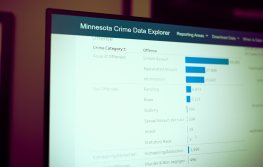Open data in Seattle: Progress report and plan reveal transparency triumphs, challenges

A report and plan for coming open data efforts released by Seattle’s technology department Monday offer a glimpse into the challenges a city government faces in being transparent with the public.
Amidst a trend by city governments to make their data “open by default,” Seattle Mayor Ed Murray took things one step further in February 2016 when he signed an executive order to make city data “open by preference.” The city’s new Open Data Program created an ambitious framework for agency data sharing accompanied by specific goals of how the city would change its practices to make publication not just common, but preferable as the city and its entrepreneurial public tackled issues ranging from homelessness and racial equity to tourism and parks improvement. The city’s 2017 Open Data Plan lends insight to the city’s transparency efforts so far, while a Open Data Program 2016 Annual Report shows how the city’s aggressive approach to data publication is being adopted across departments.
From the launch of an awareness campaign, creation of an open data playbook, and new outreach efforts with local civic technology groups, the report mostly advertises signs of success.
The city aimed to establish “open data champions” — someone who would take ownership of the transparency initiative within their department — in at least 70 percent of city departments by the end of 2016. The city exceeded that goal with champions at 31 of 33 departments.
The city exceeded its data publication goal, too, with 146 new data sets published in 2016.
But the data publication figure is deceiving if taken at face value, as a minority of departments are doing a majority of the publishing. The program asked for every city department to publish at least one data set by the end of the year, but only 15 — less than half — did. One body, the Office of Intergovernmental Relations, did not participate at all — no open data champion, no data sets published, no participation in open data education events like Seattle IT’s “road show” or the city’s three-day open data camp.
City Chief Technology Officer Michael Mattmiller told StateScoop that office’s lack of participation was a due to a “miscommunication” and that it will begin participating this year.
In the city’s open data plan, the technology department outlines a desire to create a more “virtuous cycle” of data publication that leads to the creation of new tools, thus raising the profile of data, solving more problems and leading to the opening of even more data. Among the priorities established by the new plan are a drive to improve the “discoverability” of existing data sets and the quality of the city’s existing open data platform.
The plan also includes a list of the data scheduled for release in 2017, which as of January 31 contained 25 items.
Local programmer Tim Clemans said he has mixed feelings about the city’s plan.
“What I really liked about the plan is that it tells us for the first time what they’re planning to put up,” he said. “And I was disappointed at just how few data sets they were planning to put up.”
Clemans has in recent years gained a degree of fame for his exploits — first for demanding nearly every police department in the state hand over all of their video to him, a request made possible by the state’s liberal transparency laws that placed a burden on departments many police chiefs called impossible. Months later he entered the public eye again, setting the record for most consecutive daily visits to the Space Needle, according to the New York Times.
Clemans called the state of open data in Seattle “crappy” and “frustrating,” recalling one incident in which he asked for clarification on the department’s officer involved shooting data. But he said they blew him off.
“What’s frustrating is it’s all done in a silo,” he said. “There’s very little work with the people who actually end up using this data, say in an application or whatnot. I attend the monthly Open Seattle meetup and I’ve never seen the new Open Data Program manager [David Doyle] there.”
No city does everything right, said Stephen Larrick, open cities director at the Sunlight Foundation, but Seattle is demonstrating a “responsible” ability to follow through.
Larrick noted that while many cities have made commitments to establish an open data playbook and to publish follow-up plans, few actually make good on those commitments, but Seattle has.
And while many cities, like New York, publish a list of the data sets they intend to publish in a pdf document, few — ironically — publish that data as a data set, something Seattle says it plans to do quarterly.
“This is a city that’s doing a lot to train and to really think about how to make this easy for departments. It’s not just an executive-level ‘do this’ but they’re doing training and they’re providing guidance,” he said.
Nationally, the open data movement can be divided into two parts, Larrick said — there’s a technical and legal effort to make information available, and then there’s the sometimes “scary” commitment to integrate data sharing into regular government business. Seattle, he said, is putting a lot of effort into doing both.






